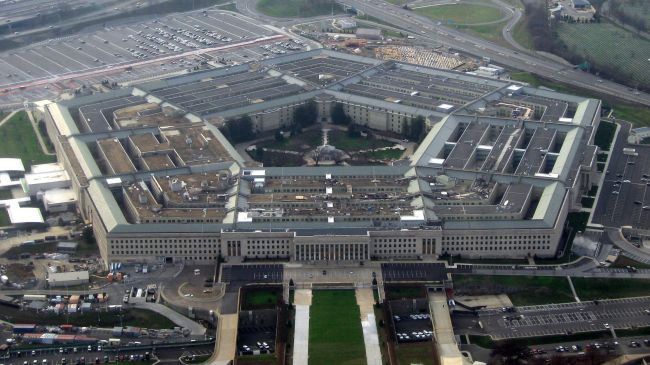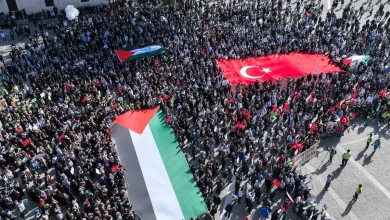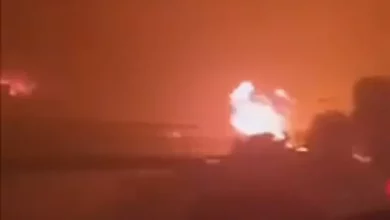Pentagon in ‘triage mode’ in anticipation of shutdown

Defense Department leaders are in “triage mode” as the Pentagon scrambles to adjust domestic and international operations in anticipation for a government shutdown.
Senior Pentagon and military officials are attempting to cope with a slew of “grey area decisions” where leaders are forced to pick and choose which US national security priorities to preserve if the government grinds to a halt on Oct. 1.
Key Department of Defense (DOD) offices are wasting “thousands of hours of employee time” that could be used to address pressing national security issues facing the United States, Pentagon Comptroller Bob Hale said Friday.
“The planning itself is disruptive,” Hale told reporters at the Pentagon regarding the department’s shutdown planning.
“I am in triage mode,” he said, adding that Congress needed to take action immediately to avoid a shutdown.
On Friday, the Senate voted along party lines to pass a stopgap spending measure lasting until Nov. 15 after removing controversial language to defund ObamaCare.
The 54-44 vote puts the Senate on a collision course with the House, where Speaker John Boehner (R-Ohio) has said the stripped-down bill will not reach the floor.
If Congress does not resolve the impasse by Tuesday, funding will expire and many government services will be limited.
Pentagon officials are preparing to furlough nearly all of the department’s civilian workforce, severely curtail day-to-day US military operations and bring any plans for new business contracts to a halt if the federal government shuts down.
The shutdown plan, drafted by Deputy Defense Secretary Ash Carter and released Friday, follows closely the Defense Department contingency blueprint issued by military leaders in anticipation of the last shutdown threat in 2011.
Despite those sharp reductions, department and service leaders will continue to carry out “essential operations in the absence of appropriated funds,” Carter said in a memorandum on Friday.
“The department will, of course, continue to prosecute the war in Afghanistan … as well [as] continue many other operations necessary for the safety of human life and protection of property,” Carter said in the Pentagon-wide memo.
Carter listed over 40 essential Pentagon and service-led activities that will be exempted from a possible government shutdown on Oct. 1.
Aside from combat operations in Afghanistan and elsewhere, the national security missions on the list range from ongoing intelligence operations to maintaining dining halls and gyms.
White House-directed missions, such as military action in Syria, would also be exempted from the effects of a shutdown, Hale added.
But questions still remain among DOD leaders and military commanders over which specific missions can be exempted from a shutdown.
Certain training missions for units preparing for possible combat operations may or may not be exempt under a shutdown, since some of those operations may not be related to ongoing conflicts, Hale explained.
Under a shutdown, DOD operations to prepare U.S. troops heading to Afghanistan will not be affected.
But funding to get American service members home from Afghanistan may not be exempt, since that mission is technically not supporting ongoing operations.
“That is a judgment Gen. [Joseph] Dunford will have to make” on how to get those troops home, if a shutdown occurs, Hale said.
Dunford is the top U.S. commander for all American and coalition forces in Afghanistan.
Aside from those issues, Hale and senior DOD leaders are also concerned about the shutdown’s effect on the civilian workforce.
Roughly 400,000 civilian employees – half of the entire civilian workforce – would be sent home from the Pentagon and other DOD installations as a result of a shutdown, Hale said.
“I would expect [civilian furloughs] to be in that vicinity,” he added.
Pay for civilians who are furloughed would come only if Congress passed a law approving it, Pentagon Press Secretary George Little said last week.
The shutdown-driven furloughs come just as DOD civilians are coming back from the last round of furloughs under sequestration.
That double-hit to Pentagon civilians could force those employees from the department in droves, according to Hale.
A potential shutdown would be “one more blow to morale for our civilian workforce,” he said.
“I am very concerned about the effect this will have” on DOD civilians, Hale added.
However, Carter and Defense Secretary Chuck Hagel held out hope congressional lawmakers would be able to reach an eleventh-hour deal to avoid a shutdown.
“Secretary [Hagel] and I hope the Department of Defense will receive a [continuing resolution]” before the Oct. 1 deadline, Carter said Friday.







